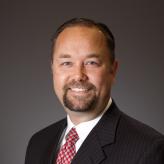Non-partisan student politics club sues College of Charleston for unlawful discrimination

CHARLESTON, S.C. – A student-led, non-partisan student organization filed a federal lawsuit Tuesday against the College of Charleston for refusing to recognize it as a registered student organization. Administrators at the college claim the South Carolina Politics Club is “too similar” to another student club on campus, but the lawsuit points out that the school cannot deny recognition based on perceived similarity of purpose and contends that the school’s decision is arbitrary and unjustified, resulting in unconstitutional discrimination against SCPC.
The college claims that the student group duplicates the purpose of the Fusion Party, a registered student organization that also encourages political engagement. However, the Fusion Party and SCPC differ in purpose, mission, and importantly, speech.
“Public institutions of higher learning are uniquely expected to be a free marketplace of ideas, not an assembly line for one type of thought,” said Alliance Defending Freedom Legal Counsel Blake Meadows. “College of Charleston administrators are limiting SCPC members’ First Amendment freedoms by giving them three unreasonable options: Change their group’s core mission, merge with another group that has different beliefs, or give up the benefits of being a registered student organization.”
The college has repeatedly denied the group registered student organization status, a gateway to numerous resources that include the ability to reserve meeting space, invite speakers, and access the pool of mandatory student activity fees that SCPC members pay into. If student groups are funded with student fees, the Constitution requires the funds be allocated in a viewpoint-neutral manner. However, SCPC’s members already pay mandatory student activity fees that are allocated to other registered student organizations, including ones at odds with SCPC’s beliefs.
The university gives power to the Student Government Association to decide whether a group may be eligible to receive funding. The lawsuit, South Carolina Politics Club v. Osborne, points out that this sweeping authority allows the college to deny recognition and funding for arbitrary and unjustified reasons, including unconstitutional viewpoint discrimination.
ADF attorneys explain that public universities cannot refuse to approve a student group without justification and must ensure recognition and student activity funding are approved in a viewpoint-neutral manner. The lawsuit indicates that requiring students to join a registered student organization with different beliefs and principles, as a condition of speaking and associating, is entirely at odds with the First Amendment.
“Students don’t give up their constitutionally protected freedom to speak or associate when they set foot on a public college campus,” said ADF Senior Counsel Tyson Langhofer, director of the ADF Center for Academic Freedom. “Today’s university students will be tomorrow’s voters and civic leaders. That’s why it’s so important that public colleges and universities exemplify the First Amendment values they are supposed to be teaching to students.”
Reese R. Boyd III, one of more than 3,200 attorneys allied with ADF, is serving as local counsel for the student group in the case, filed in the U.S. District Court for the District of South Carolina, Charleston Division.
- Pronunciation guide: Langhofer (LANG’-hoff-ur)
The ADF Center for Academic Freedom is dedicated to ensuring freedom of speech and association for students and faculty so that everyone can freely participate in the marketplace of ideas without fear of government censorship.
# # # | Ref. 63543
Related Profiles

